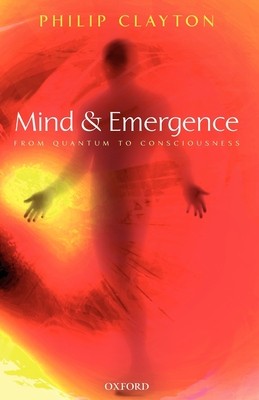
- We will send in 10–14 business days.
- Author: Philip Clayton
- Publisher: Oxford University Press, USA
- ISBN-10: 0199291438
- ISBN-13: 9780199291434
- Format: 15.3 x 21.5 x 1.4 cm, softcover
- Language: English
- SAVE -10% with code: EXTRA
Reviews
Description
Strong claims have been made for emergence as a new paradigm for understanding science, consciousness, and religion. Tracing the past history and current definitions of the concept, Clayton assesses the case for emergent phenomena in the natural world and their significance for philosophy and theology. Complex emergent phenomena require irreducible levels of explanation in physics, chemistry and biology. This pattern of emergence suggests a new approach to the problem of consciousness, which is neither reducible to brain states nor proof of a mental substance or soul. Although emergence does not entail classical theism, it is compatible with a variety of religious positions. Clayton concludes with a defence of emergentist panentheism and a Christian constructive theology consistent with the new sciences of emergence.
EXTRA 10 % discount with code: EXTRA
The promotion ends in 20d.23:33:44
The discount code is valid when purchasing from 10 €. Discounts do not stack.
- Author: Philip Clayton
- Publisher: Oxford University Press, USA
- ISBN-10: 0199291438
- ISBN-13: 9780199291434
- Format: 15.3 x 21.5 x 1.4 cm, softcover
- Language: English English
Strong claims have been made for emergence as a new paradigm for understanding science, consciousness, and religion. Tracing the past history and current definitions of the concept, Clayton assesses the case for emergent phenomena in the natural world and their significance for philosophy and theology. Complex emergent phenomena require irreducible levels of explanation in physics, chemistry and biology. This pattern of emergence suggests a new approach to the problem of consciousness, which is neither reducible to brain states nor proof of a mental substance or soul. Although emergence does not entail classical theism, it is compatible with a variety of religious positions. Clayton concludes with a defence of emergentist panentheism and a Christian constructive theology consistent with the new sciences of emergence.


Reviews